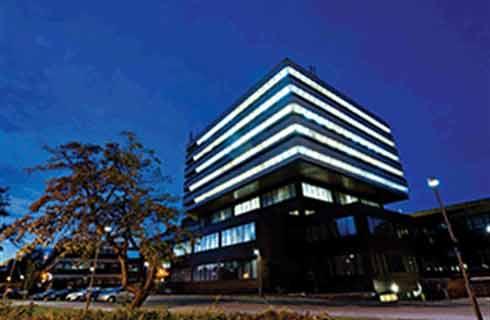国际学生入学条件
All official Transcripts. A bachelor’s degree or its foreign equivalent from an accredited college or university. Official transcripts of your grades.
Three letters of recommendation. Applicants are required to upload a transcript (may be unofficial at this time) including the key from all attended colleges or universities.
The transcript must show the name of the student, name of the issuing institution, name of courses taken, and the grades received in those courses.
The Graduate School does not have a minimum TOEFL or IELTS score requirement. If you are offered admission and accept our offer and have scored below a 27 on the Speaking sub-section of the TOEFL iBT or below an 8.0 on the Speaking sub-section of the IELTS you will be required to take an English placement test at the start of the fall term. Students who do not pass the test will be required to enroll in English Language Program classes.
GRE :
General Test optional/not required; Physics Subject Test optional/not required
Additional departmental requirements
Applicants must indicate at least one choice from a menu of Department's current Areas of Research – see the Department of Physics website "Research" section for descriptions of the research areas and the current activities in each. The Statement of Purpose is a good opportunity to clarify research interests. The Department of Physics notes that it is not necessary to describe how an applicant developed an interest in Physics. Applicants are typically best served by devoting the statement to a description of their research background and interests. However, applicants with unusual or compelling paths are welcome to describe their experiences. In any case, the Statement of Purpose should focus on an applicant’s specific research interests at Princeton and any relevant research experience.
展开
IDP—雅思考试联合主办方

雅思考试总分
6.0
- 雅思总分:6
- 托福网考总分:60
- 托福笔试总分:160
- 其他语言考试:NA
CRICOS代码:
申请截止日期: 请与IDP联系 以获取详细信息。
课程简介
The goal of high energy physics is the understanding of the elementary particles that are the fundamental constituents of matter. The fabulous success of the Standard Model has given us a framework for the interpretation of most particle interactions, but it has also created a foundation from which we can begin to explore a deeper level of issues such as the origin of mass, the preponderance of matter over antimatter in the Universe, the identity of dark matter, the physics of the Big Bang, and the microscopic structure of space-time. The most direct experimental path to the understanding of such issues uses particle collisions of the highest achievable energies. Following this path, Princeton physicists are deeply involved with the CMS experiment at the Large Hadron Collider (LHC) at CERN (Switzerland). Within the next ten years, the LHC will be upgraded to increase the number of particles per collision. Its successor, the High Luminosity-LHC (HL-LHC) will also require many upgrades to the CMS experiment. The Princeton CMS group is involved in research and development for many of the upgrades including the outer tracker, the MIP timing detector, the Level-1 trigger system, and computing through the IRIS-HEP software institute.
展开







 预科
预科 奖学金
奖学金 实习机会
实习机会 在校学习
在校学习 跨境学习
跨境学习 校园授课-线上开始
校园授课-线上开始 在线/远程学习
在线/远程学习














 俄勒冈州立大学
俄勒冈州立大学

 温莎大学
温莎大学

 马里兰大学巴尔的摩分校
马里兰大学巴尔的摩分校

 纽芬兰纪念大学
纽芬兰纪念大学

 南加州大学
南加州大学

 渥太华大学
渥太华大学









